In the wake of the release of Dead Son Rising, the new album from ID:UD’s patron saint and all-around synth god Gary Numan, it seems as good a time as any to attempt rectify a long-standing injustice. While the media at large is all too happy to make some off-hand mention of Numan’s legacy when he collaborates with current “it” bands, makes cameos on cult TV, or does stuff like this (which, okay, was pretty awesome), they’re pretty much loath to talk about his recent records. Whether that’s due to a misguided belief that older artists don’t shift units (of records, magazines or branded iPods) or a lack of context required to understand and analyze the work Numan has been doing for the last fifteen years is anyone’s guess. As a couple of shiftless bloggers there’s precious little we can do about the former, but we can do our level best to fix the latter. In anticipation of Dead Son Rising, we offer ID:UD’s take on the Numan renaissance, album by album.
The story is well-established. The law of diminishing returns had caught up with Gary Numan by the early 90s, and he was at a critical and commercial nadir. Ever weakening variations of his late 80s dance-funk-rock hybrid sound had culminated in 1992’s Machine And Soul, an album rightfully regarded by most, including Numan himself, as his worst. It’s a creatively bankrupt affair that found our hero, devoid of any idea on how to break back through into the mainstream making what for all the world sounds like a Robert Palmer record. A bad Robert Palmer record. If you’re a fan of Numan, think of your favourite song by him, whether it’s “Down In The Park”, “Metal”, “Stormtrooper In Drag”, or even the song from which this site takes its name…then watch the video for “Emotion”:
As much as that might’ve hurt to watch, know that it hurt Numan even more. Here’s how he describes his state at the time of Machine And Soul: “Imagine falling off a ship in the ocean, knowing if you stop swimming you’re finished. That’s what I was doing then. I was trying not to die.” Ouch.
But things were about to improve, both for Numan and loyal fans who’d stuck with him. Pushed to the limits by chasing chart success, Numan made a conscious effort to abandon commercial trends and instead begin writing and recording in the stripped-down, minimal style with which he’d started. While his new records wouldn’t sound exactly like his classic first ones, they’d give a similar sense of satisfaction to both fans and Numan, despite their dark tone. “I felt as though I was stepping into a studio for the first time…My mind began to wander and to see things in that slightly off the wall way that I’d always been proud of all those years ago. I felt as if I’d gone full circle and I began to enjoy making music again.”
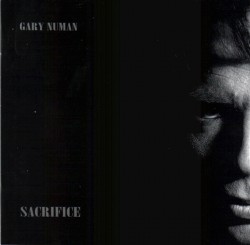
Bruce: Despite all of the above context, the majestic, solemn, and utterly dark sound of Sacrifice still comes as a shock when it’s listened to on the heels of Machine And Soul. Glacial synths and pianos echo, tight but expressive drum loops roll along, and Numan subtly softens his croon to match the lyrics’ more introspective slant, a turn which is often as eerie as it is appropriate. “Bleed” stands as my personal favourite from the album, both for its classically Numan sense of melody as well as its nightmarish depiction of, um, nightmares.
That said, for all of its darkness Sacrifice is also incredibly enjoyable and at times uplifting. “Magic” is a defiant and self-affirming litany of objects of personal faith, in which Numan finds infinitely more succour than in religion. The rhythm of “A Question Of Faith” could have come from one of Numan’s previous funk-inflected albums, but to hear it in the context of the most anthemic thing he’d done since 1984’s “Berserker” is nothing short of a revelation.
Alex: The whole mode of Numan’s latter era is laid out on “Pray”, the still frisson-worthy first track on Sacrifice, both in its soon to be familiar lyrical attacks on God (although the couplet “There is nowhere left to hide/No safety in old glories” from the spoken intro seems pretty self-referential in the light of hindsight doesn’t it?), and in the sort of expansive and reverbed out landscape that has been Gary’s stock and trade for a few years now.
Speaking of which, it’s worthwhile to note that it’s been 17 years since the release of Sacrifice, which makes it roughly the chronological halfway point of Numan’s career, at least if we accept the first Tubeway Army record as a starting point. To my mind that puts the lie to those that would paint the sea change in his work as a cynical attempt to cash in on industrial rock’s brief moment in the sun; why in uh, God’s name would he keep “borrowing” long after commercial interests have stopped caring about our thing?
Bruce: I think we know the answer to that: people working with the motifs of our particular niche are clearly just aping the one or two crossover artists mainstream journos are passingly familiar with, whereas innumerable milquetoast indie rock bands are obviously forging ahead on the One True Path of rock music’s development, and clearly not just rehashing the Pavement and Pixies records they grew up with. Moving on…
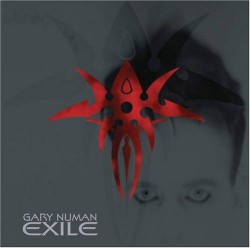
Bruce: If Sacrifice was somewhat interested in anti-religious themes, Exile is downright obsessed with them. Specifically, Numan takes up the absence of God, rather than disbelief itself (a crucial theological distinction) and the subsequent state of despair (again, in the theological sense, not in a typical wrist-to-forehead “woe is me” manner). Numan isn’t so much concerned with the question of whether or not a God exists as he is with the apparently infelicitous promise of Christian salvation. Heady stuff to be sure, and a far cry from the facile fare he’d been dishing out on the regular just a few years previous.
In any case, Exile offers a far more unified sound than its predecessor, but in some respects takes that too far: it’s almost impossible to distinguish the drum beats (best described as trip-hop by way of Depeche’s Songs Of Faith And Devotion, perhaps?) from one track to another. While this repetition might prompt boredom with an album less lushly arranged, here it instead gives a niggling sense of the uncanny, not the worst thing in the world when dealing with fare as unreservedly spooky as this. Highlights include the devotional “Absolution” and the all-out barn-stormer “Dominion Day”.
Alex: Despite the fact that Exile features “Dark”, for my money the best Numan song of the 90s, the album has always felt limited by creative tunnel vision. Even a casual glance at the track listing reveals its thematic single mindedness (seven of nine songs are specifically about how religion is some old bullshit) and the production is so samey from beginning to end that the album tends to blur together. That said, it’s not unpleasant as blurs go, and the homogeneity works in its favor when listening to the whole thing in one sitting, the peaks and valleys from song to song occasionally attain the sort of grandeur that your better soundtracks do. That’s especially apparent when listening to the nigh quixotic extended version of the album, which features the same songs in the same order, but arranged for an average of about seven and a half minutes of playtime, a move that works much better here than when he tried the same thing with Sacrifice.
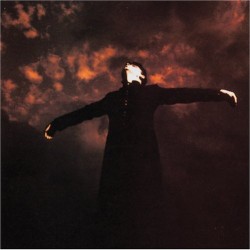
Bruce: Having taken his newly rediscovered muse to the limits of the “evocatively moody” end of the spectrum, Numan next opted to take what he’d learned on that journey and strike out for louder territory. Far louder territory. Chugging, fuzzed guitar chords, which had been used primarily for texture on the previous two discs, with vocals and synths carrying the songs, are now smack up-front and whirl through Pure like tornadoes.
The common story in mainstream publications at the time of Numan’s rebirth was that he was now borrowing from the industrial rock tradition to which he’d been a source of inspiration (that most said publications took this quid pro quo at face value without asking why Numan wasn’t copping from techno or electro, forms which showed his thumbprints much more clearly, speaks volumes in my opinion). If there’s an album for which this saw holds true, it’s Pure. “Walking With Shadows” has a clear Downward Spiral influence, and many of the tracks do fall into the old whisper-quiet-verses/super-loud-chorus “dynamic” which did indeed plague much industrial rock in the ’90s (though which certainly wasn’t limited to it). That said, for every track of this ilk which falls flat (“Rip”, “My Jesus”), there’s at least one which delivers (the title track and the legitimately harrowing closer “I Can’t Breathe”), and when Numan weds his newfound love for guitars with the style of the previous two albums, as on “Listen To My Voice”, everything goes right.
Alex: For its occasional failings, Pure is the beginning of a remarkably personal era for Numan’s lyrics. While the standard treatises against the almighty are present, there are moments of stirring sincerity that redefine the man whose early career was spent painting himself as some kind of figurative robot-alien, uncomprehending of our hu-man emotions.
The real centerpiece of Pure to my mind is the one-two punch of “A Prayer for the Unborn and the heartrending “Little InVitro”, each song dealing with the loss of a child pre-birth. First lashing out externally before retreating into sorrow, Numan has never been as emotionally naked as he is here, an almost shocking display of candor with regards to a personal tragedy, especially in the context of his greater career.
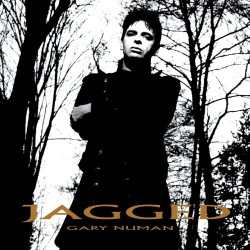
Alex: I often analogize Jagged with 1980’s Telekon, in that it’s an album that seems less concerned with exploring new ground than refining what came before it. There’s a tendency to paint that negatively, but given the hit and miss nature of Numan’s experiments with other styles, I’m happy enough for the moments when he allows himself to unfold a bit and make something that just sounds like what even the casual listener can pick out as a Numan record. That’s perhaps a roundabout way of addressing the fact that there aren’t any overly great songs present on Jagged, although the title track, single “In a Dark Place” and the ghostly “Before You Hate It” are all pleasant enough, there’s nothing they do that isn’t done more memorably on the preceding three albums.
Bruce: When I listened to Jagged upon its release I felt as though it hadn’t done enough to distinguish itself from Pure. I’d like to revise that; Jagged definitely shows Numan advancing in his deployment of guitars, moving beyond the quiet/loud binary which somewhat hamstrung his previous record. Jagged is definitely Numan’s most accomplished work in terms of depth of production and arrangement, but I do still feel as though it suffers from a dearth of memorable tunes as such. The first four tracks roll by pleasantly enough, but without making any lasting impression. Things pick up with in the middle with “In A Dark Place” and “Haunted”, but that’s about it until the intriguingly woozy synths of the album closing title track.
That’s it! You can now hold your head up high, assured that the next time you catch someone you fancy humming along to “Cars” at the bar, you can speak with encyclopedic authority about the manifold ways in which Numan’s style has shifted since then, a quality that’s sure to keep anyone from having to be reminded to smile, har har! Until then, take a gander at the video for “The Fall”, the first single from Dead Son Rising. The NIN influence remains on the verses, but the on-the-nose chorus is pure, awesome Numan, new or old. Watch this space for a full review of Dead Son Rising in the coming weeks.

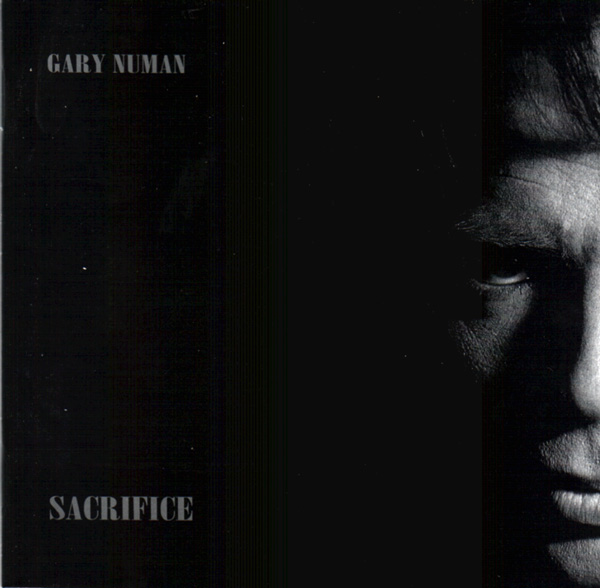
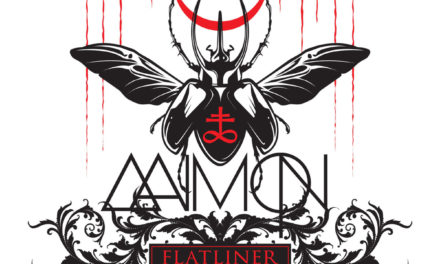
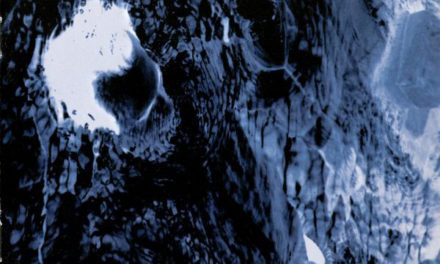
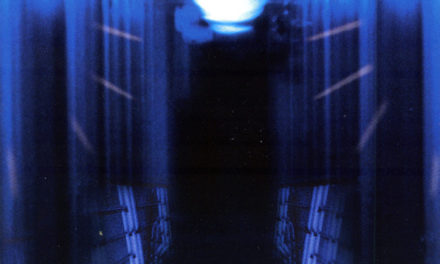
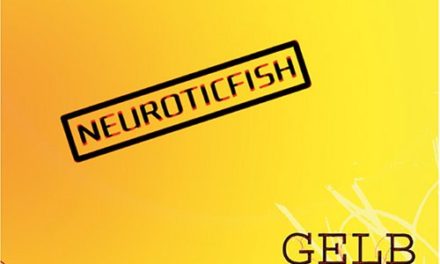
Great retrospective on Numan’s most recent works. To be honest, he fell off my musical radar as much as anyone’s until I made an effort to dig up what he’d been doing for the past 20 years.
I was a little shocked to hear to original version of “Emotion” – I was far more familiar with the remix by “killswitch click” – it strips out the soul-funk, and crafts a much more better track. I’d link to a youtube video of it, but that particular mix doesn’t appear anywhere. Odd.
Yeah, “The Mix” is an odd beast: remixes of a pretty predictable group of greatest hits…then “Emotion” & two tracks from Sacrifice. KSK do as much as they can with it.
Is it a Cleo comp? Those things usually seem like they’re curated by drunken baboons.
Need you ask? 😉 The Leather Strip and Anubian Lights mixes are pretty great.
My favorites on “Sacrifice” are actually the bonus tracks: “Play Like God” and “Metal Beat”, specifically. They have very interesting lyrics and are far more catchy than anything he did from “Exile” onwards. It’s a good album.
Personally, I like “Emotion” (in my insular, Numanoid fashion): I’d rather listen to Numan ape Janet Jackson and Robert Palmer than generic industrial sludge.
As far as artistic integrity, I just don’t think Numan *realizes* the whole darkwave, industrial scene of the 90s has passed.